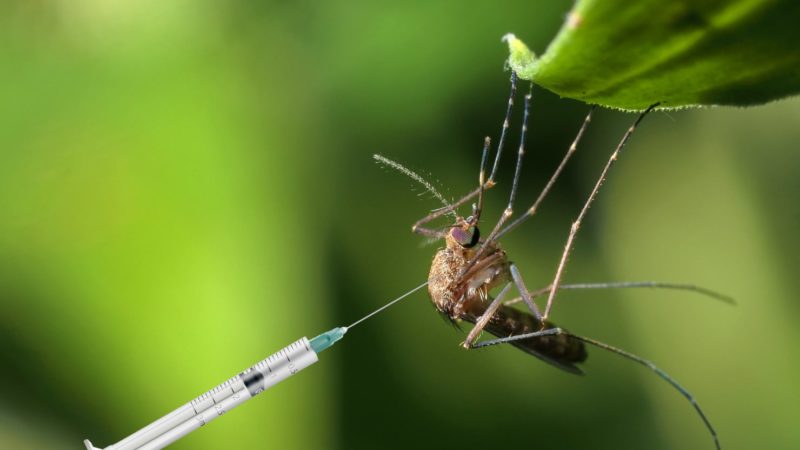The Association of Catholic Medical Practitioners of Nigeria (ACMPN), Owerri Archdiocese, in a recent statement warns against the release of genetically modified mosquitoes and risk of infertility of people in West Africa

Malaria is a serious public health issue, affecting millions of people annually. Africa continues to carry a disproportionately high share of the global malaria burden. Fortunately, since 2000, the malaria death rates in Africa have decreased by 66% among all age groups, and by 71% among children. The declines in malaria incidence and deaths are attributable to extensive and effective use of insecticide treated bed-nets and more effective treatment regimen with Artemisinin-Combination Therapy (ACT). The search for solutions, particularly for vector control, nevertheless continues, due to resistance to the insecticide used in bed-nets.
GMO Mosquitoes Release Has No Health Benefit
The project was given a permit to make an open release of 10,000 genetically modified organisms (GMO) Anopheles gambiae mosquitoes: most likely in the village of Bana, west of Bobo Dioulasso. The GMO mosquitoes were exported from Imperial College in London to Burkina Faso in November 2016 and are currently in “contained use” facilities.
Target Malaria research consortium is an NGO funded by the Bill & Melinda Gates Foundation amongst others, plans to release Genetically Modified Organisms (GMO) “male-sterile” mosquitoes in Burkina Faso later this year in 2018. Target Malaria acknowledges that there are no benefits to the proposed GMO mosquito release. However, they have not explained what the risks are posed by this release.
Unproven Technology
Target Malaria’s ultimate aim is to make open releases of “gene drive” mosquitoes, with the aim of reducing the population of Anopheles gambiae mosquitoes, which can transmit the parasite that causes malaria. The hope is that reducing the mosquito population will reduce the risk of malaria transmission and hence disease incidence. “Gene drive” is a way of trying to spread genetically engineered traits through a whole population of plants or animals (in this case, mosquitoes).
In this project, the aim of the gene drive is to spread a genetic trait that biases the sex ratio of the mosquito population towards male mosquitoes, thus suppressing the mosquito population. However, the technology to do so does not yet exist and may not be successful. There have been many warnings, including from scientists working in the area of gene drive, that gene drive may be uncontrollable and could have unintended consequences, and civil society organisations have called for a moratorium on this technique.
Could GMO Mosquitoes Cause Human Infertility across Africa?
The GMO mosquitoes proposed for release this year are Anopheles gambiae mosquitoes, which have been genetically modified to be male-sterile by a construct that incorporates the Homing Endonuclease Gene (HEG). Target Malaria reports that these GMO mosquitoes have shown 100% infertility: stating that, to date, all eggs laid by females that have mated with these GMO male mosquitoes have been infertile.
However, there is no data to date on the possibility that the saliva of these GMO mosquitoes may or may not incorporate HEG, which could be transmitted on biting humans and cause infertility across Africa. Well founded distrust is mounting, given that the same international sponsors of this project also funded the development of anti-human chorionic gonadotropin (anti-HCG) called the infertility vaccine that was incorporated into tetanus vaccine (and others) administered to women of child-bearing age in Africa, Asia and Latin America to cause infertility without consent. There is fear across Africa that the target of this GMO mosquitoes release may not be malaria, but targets spread of infertility across Africa through bites of GMO mosquitoes.
Calls for ICC Prosecution
ACPMN calls for International Criminal Court (ICC) prosecution of Imperial College London, UK, Burkina Faso, Target Malaria and Bill & Melinda Gates Foundation. Under European Union (EU) law, Imperial College should provide a publicly available environmental risk assessment that meets European standards before exporting GMO insect eggs for open release to foreign countries. This legal requirement arises because GMO insect eggs are live genetically modified organisms (living modified organisms or LMOs) covered by the Cartagena Protocol on Biosafety (CPB) to the Convention on Biological Diversity, to which the UK and Burkina Faso are both Parties.
The relevant legal requirements for export are implemented in the UK through the European Regulation (EC) 1946/2003 on transboundary movement of genetically modified organisms. This Regulation requires that the environmental risk assessment (ERA) provided by the exporter meets the EU standards on risk assessment contained in EU Directive 2001/18/EC16.
